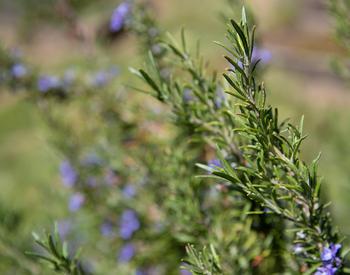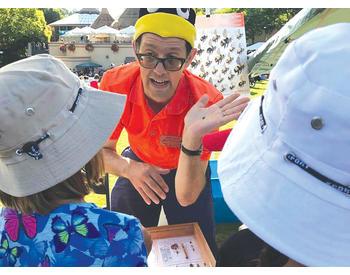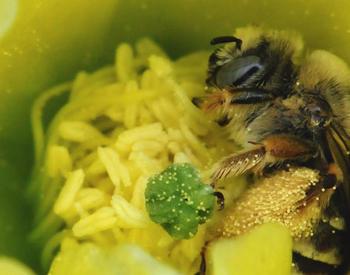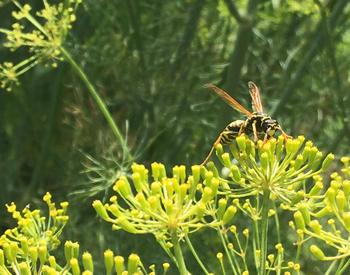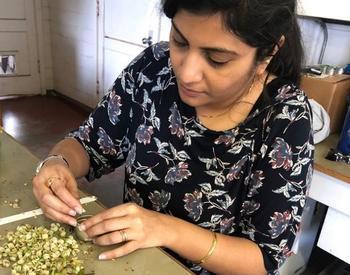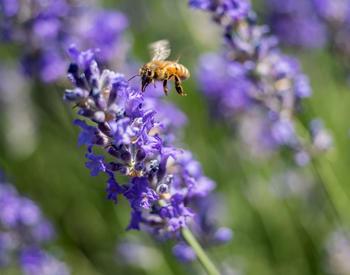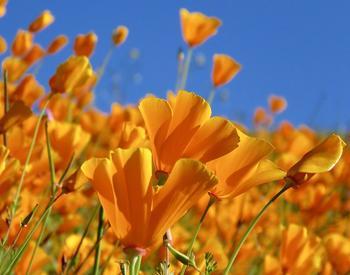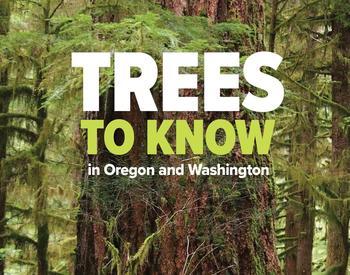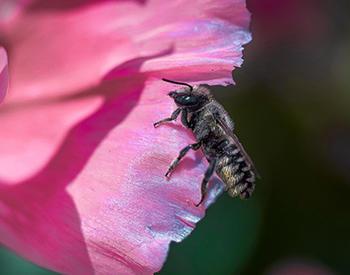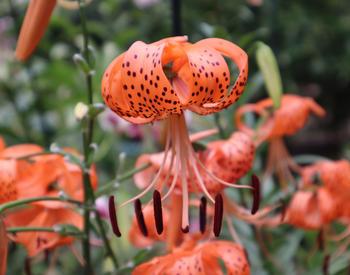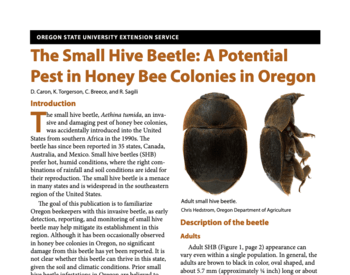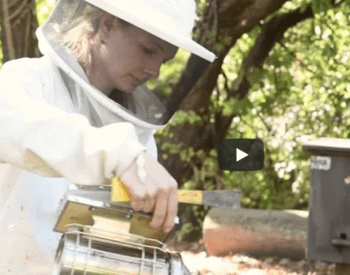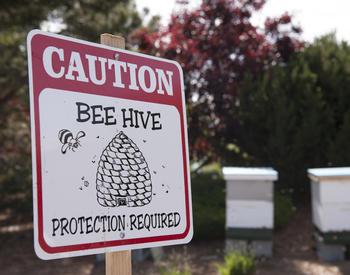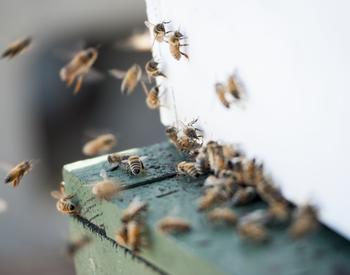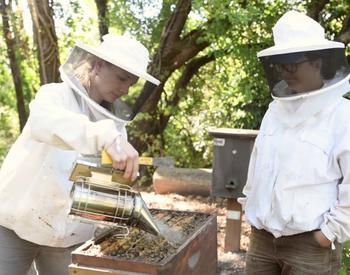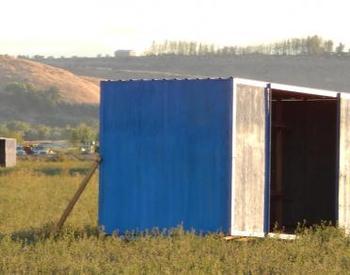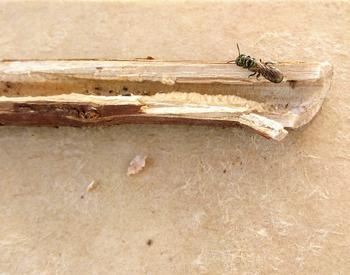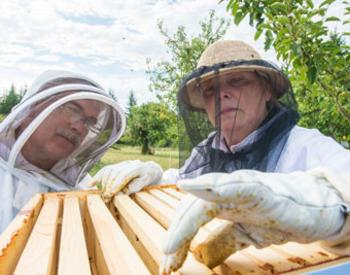Transcript
Andony Melathopoulos: [00:00:00] I sometimes pause and look backwards, and I'm so amazed at how the area of pollinator health is expanded. It's really gone in all directions. It's almost too hard to keep in touch with all the state and federal agencies that are active on pollinator health issues, let alone the new grant opportunities that are coming from new programs that, I never heard of new nonprofits and new publications.
It's just really hard, even for the host of. Pollination to really know what's going on. But there is one person who I think has this great perspective on the whole, and that's our guest this week. Izzy Hill is the U S D A pollinator coordinator for the US Department of Agriculture and housed in the office of the Chief Scientist.
And you can hear in this episode, this is a new position and really it. Role of promoting collaboration and communication across U S D A agencies, the managed pollinator industry, and U S D A grant recipients on issues [00:01:00] related to pollinator health. And one thing that's come out of this new position is a resource that if you haven't heard about it, you're gonna hear about it in this episode.
The latest buzz is a regularly published newsletter. It's like an email that you get that. All the publications, it has all the grand opportunities. If you're a graduate student looking for graduate opportunities, it's all there. If you're looking for a job, it's there. It's like the one stop shopping place for knowing about all things pollinators in the us.
So in this episode, you're gonna. Hear a little bit about where the latest buzz came from, how you can sign up, and also a little bit about this position that Izzy holds, which I think is really critical and is really needed in the Office of Chief Scientists. So let's head over to Washington DC this week on pollination.
Welcome, Izzy. I am so excited to finally have you as a guest on the show. [00:02:00] Thank you for having me. Now, before we get into the meat of this show, which is this one email that comes from your office that I'm always excited about, I think. It would be great. For those of you who do not know about the U S D A pollinator coordinator position that you hold, it's a relatively new position.
Can you tell us a little bit about what that position does? Sure.
Izzy Hill: This new position is the excuse me, pollinator research coordinator for. Department and it was put in place under the 2018 Farm Bill. And in addition to this coordination, excuse me, position, there's about 30 different research charges that are pertinent to pollinator health.
This position is housed in the office of the Chief Scientist, which is within the research, education and economics mission area at U S D A. And although I am in a specific mission area, I do work across the department and of course with our federal partners and external stakeholders. So it's a really unique position.
There are a couple of other [00:03:00] departmental coordinators at U S D A, but I feel honored to have one of those B for pollinators.
Andony Melathopoulos: I think it's a real achievement. It's great to have this position and one thing that exemplifies amongst many things, but one real tangible thing that exemplifies this spirit of coordination is this newsletter that comes out, the latest buzz and.
I'm not sure how many people know about it. I, I talk to colleagues and they, yeah, the latest buzz, it's trickled out and people are learning more and more, and I find it invaluable. It's the one email I am so excited to see in my inbox when it pops up there, I always read it. But maybe to begin with, just kinda lay out what is the latest buzz for those of, for those out there who've never seen this thing, what is the latest buzz?
Izzy Hill: Sure. So essentially what it is a roundup of pollinator happenings and we focus both on honeybees and other types of pollinators. And in each issue we typically [00:04:00] will try to outline employment and fellowship opportunities. We also look at funding and award opportunities, and I'll. For that one specifically, we really like to think outside of the box of not just the typical funding flows for pollinators, are there other resources for example, biological research grants that folks can look into.
We look at that. We also like to share new publications that are coming out as well as publication opportunities. For example, if there's a special addition on pollinators that's coming out for a journal. We also do news stories and podcasts and upcoming events. So it's everything that crosses my desk in a typical week or month.
If I see it I make sure that it's in the buzz for others to
Andony Melathopoulos: read. It really is and it's extensive. I have to say I, the comment that you made about grants and thinking outside the box, I often learn about grants I had never even considered. I just, when that email comes into my [00:05:00] inbox, opening it up and it's huh, I guess that's something I could apply to.
It's been, it's a really good nerve center for anybody working on pollinator issues from a grad, graduate student to some somebody's working with pollinators in an NGO o it's really great. And I guess now that it's been going, when did it start? That's the other thing I'm trying to think.
So
Izzy Hill: that's a good question. This actually started back in 2020 and it originally was internal just for federal employees. And the reason it came about I'm our research coordinator for pollinators here at U S D A. And so I'm working with, hundreds of different people that work in the pollinator realm.
And I had a situation happen where there was a funding opportunity that I knew about, and I just simply forgot to send it to somebody. And I said, wow I can't be doing that. How do I fix this problem? And so I previously was at the Environmental Protection Agency and their biotech [00:06:00] liaison actually had a similar newsletter.
If you ever look at the buzz, it's very bare bones. It's just text. There's no fluff. It's more of. Compendium resource for what's out there. So I said, I think that might work here, and then we won't have this type of issue again. So we started again internally with our federal family, and within about a month or two there was so much demand from outside groups who were getting copies of it.
They said, can we please make. Public and I said, absolutely. So that was in early 2021 and we've been doing it ever since. I
Andony Melathopoulos: love the, I love the format as well, that it is bare bones it, and, but it's regular. Like I just know that it's the latest information. It's the latest buzz, but it really does, it stays very current.
And I really like the idea of its origins that, you ha, I am sure a state extension person like myself is the same way we always we're swimming in information and kind of making sure it finds the right people. This is seems like the, a very effective tool for just cer, what do you need?
You need a listing of things and it needs [00:07:00] to be, easy to work through and curated and nicely organized and have content in it. And I guess you. I've heard people like me walking up to you when we see you at a conference saying, that thing is great. Tell us a little bit about the people who've let you know that they're using it.
Do you have a sense of who's using this tool and tell some stories .
Izzy Hill: Sure. And I think it's always a surprise for us too sometimes when someone walks up and says, wow, I use the latest buzz for X, Y, and Z. Typically, I'd say a majority of those that are signed up are researchers or graduate students that are looking for both employment opportunities, but also grant opportunities.
But with that said, we also have quite a few people who are in industry conservation groups, the federal government. Who are more so interested in what the new publications are that are coming out, or what the new events are that are coming up in that year that they might want to be present at. So we really have a divide, I would say, in terms [00:08:00] of where people when they open up the buzz, where do they go to first?
There's the cohort who's definitely looking for the opportunities, and there's the cohort who's typically looking at what's the report out on what's, coming out right now. And I doubt there's anyone who reads it. covered a cover because as we mentioned, it's very long and it does keep track of previous opportunities that are still open.
And yeah I think a lot of folks just jump to the section that they're most interested in. But I will say I have. Quite a few people come and tell me, I got a grant because of the buzz. I got a job because I saw it here. That's a really, that's a great day. That's a good feeling to know that this Roundup is helping folks in their, lives.
Andony Melathopoulos: Certainly I, and I've heard stories like this as well. It's very effective at doing what it's designed to do. And I guess it's been a, a couple years now it's been running. And now I noticed in the last, this was the occasion for reaching out to you. I've been wanting to do a podcast about this, but then I saw.
There's a new look. [00:09:00] So tell us what's changed. What's the new look? ?
Izzy Hill: So as I mentioned, this really started, it was a grassroots effort. It started with a handful of federal employees just using a basic email account. But now we've got so many people that were actually. We couldn't get the emails out.
The systems were stopping us, and so we have moved it over to a listserv. So it still has that simple look to it, but hopefully now it will reach those folks who are hoping to receive it. So that was the main reason for the move. But we kind of embrace that. It's not that glamorous, but it is a good resource for inform.
Andony Melathopoulos: Oh yeah. I think none of us would. I am I'm a very appreciative that it's simple, straightforward and always on time. So I, for me, the I think as one of your hoards of subscribers we like it. It's great. Just keep it coming. . [00:10:00] Now, I guess this raises the question, how does someone subscribe or post something or how does, how do you get on this?
Izzy Hill: Sure. I think the easiest thing to do to start is to go to our main pollinator page for U S D A, so that is usda.gov/pollinators with an S at the end. And there's a link there where you can sign up for the latest buzz, and if you have information that you would like to share, you can send that to pollinator without an S [email protected].
And we are happy to include any type of information that you have. I'd say the. Typically the biggest contributions are gonna be folks that wanna share new research that they've published. But, all the time we're getting new job opportunities, new news pieces, et cetera. If someone sends it in, it ends up in the buzz.
We always allow any contribution to be listed. And as a side note it's quite beneficial for [00:11:00] me as well as a coordinator because if you send something to me, not only will it end up in the buzz, but then I know about. Which means in my day to day when I'm coordinating our research efforts across the department, it's very common for, the dots to be connected.
And I'll say, oh, this person just sent this article that I think would be of interest to you in this research pursuit that you're undertaking. So that's actually quite common. So it's a bit of a twofer if someone sends me information, not only do I know it, but it ends up in the buzz as well.
Andony Melathopoulos: Fantastic. Let thanks for giving that the broad overview. And I'm, I imagine for those of you who are hearing this for the first time, you will be delighted to discover this resource. It is so wonderful and so powerful. Thanks again, Izzy, for taking time to talk with us. Keep up the great work and I'm really excited to have let the world know about this really great resource, the latest buzz.
Izzy Hill: Thank you.
This week we hear about one of the best kept secrets, a newsletter from USDA that gives a regular update on what is going on in the pollinator world.
Elizabeth (Izzy) Hill is the Pollinator Coordinator for the U.S. Department of Agriculture, housed within the Office of the Chief Scientist (OCS). In this role, she promotes collaboration and communication across USDA agencies, the managed pollinator industry, and USDA grant recipients on issues related to pollinator health.
Links Mentioned:
